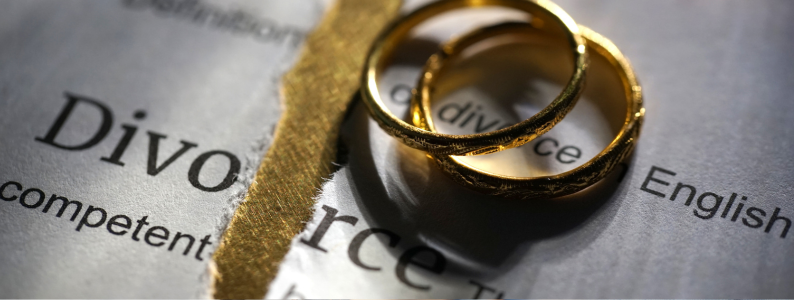Social Media and Divorce: What You Post Can (and Will) Be Used Against You
In today’s digital age, social media is a deeply embedded part of our lives. From sharing milestones and daily moments to connecting with friends and family, platforms like Facebook, Instagram, X (formerly Twitter), and TikTok have revolutionized the way we communicate. But while social media has its perks, it can also complicate personal matters, especially divorce.
At Masters Law Group, we’ve seen firsthand how posts, likes, comments, and even private messages can play a crucial role in divorce proceedings. If you’re going through a divorce or anticipating one, understanding how your social media activity could impact your case is critical.
Let’s explore how social media affects divorce cases, what kind of content can be used as evidence, and how to navigate your online presence wisely during this emotionally charged time.
Social Media’s Expanding Role in Divorce
The Digital Paper Trail
One of the key differences between divorces today and those from just a decade ago is the availability of digital evidence. Social media provides a real-time digital paper trail that can be subpoenaed and introduced in court.
Photos, captions, check-ins, friend lists, direct messages, and comments can all be retrieved and used to build a narrative about your behavior, lifestyle, and credibility. Even deleted content may not be fully gone. Once something is on the internet, it can often be recovered.
How Social Media Can Impact Your Divorce
1. Allocation of Parental Responsibility
Your social media behavior can directly affect your parenting plan. Courts aim to make decisions based on the best interests of the child. If your posts suggest irresponsible parenting, such as photos of excessive partying, substance abuse, or disparaging comments about your ex, it could significantly harm your case.
Even a seemingly innocent post of a night out without your child could be interpreted as neglectful, depending on the context. Judges take a holistic view, and social media can tip the scales.
2. Alimony and Asset Division
If you’re claiming financial hardship while simultaneously showcasing a luxury lifestyle on social media, don’t be surprised when your posts are used against you.
Posts featuring expensive vacations, new cars, high-end purchases, or lavish dinners can contradict claims of limited income or inability to pay spousal or child support. Conversely, if you’re hiding assets or underreporting income, social media can reveal the truth.
3. Infidelity and Misconduct
Even if Illinois is a no-fault divorce state, evidence of cheating or marital misconduct can still influence certain aspects of a case, particularly parenting plans or property division.
Tagging, location check-ins, or cozy photos with a new partner during separation can be used to paint a narrative of infidelity or poor judgment. Direct messages or flirty comments might also be admissible evidence.
4. Violation of Court Orders
Once legal proceedings are underway, temporary orders regarding communication, child visitation, or financial support may be in place. Violating these orders, intentionally or not, via social media can result in contempt of court.
For example, badmouthing your ex online after being ordered not to, or discussing confidential aspects of your divorce, can have serious legal consequences.
Real-Life Examples of Social Media Missteps
To illustrate just how impactful social media can be, here are a few real-world scenarios:
- The Instagram Overshare: A woman claimed she couldn’t afford spousal support, but her Instagram account showed a recent trip to the Maldives, designer handbags, and daily upscale dining. Her feed became a key exhibit in her ex-spouse’s motion to modify support.
- The Facebook Faux Pas: A father in a parenting plan dispute posted a video of himself drinking with friends while his young child was present in the background. The video was submitted to the judge and influenced the arrangement.
- The TikTok Rant: A man posted a series of rants about his ex and the court system. His videos included threats and disparaging remarks. The court considered the content abusive and ruled it as damaging behavior in both parenting time and property division rulings.
Tips for Managing Social Media During Divorce
To help protect yourself and your case, consider following these practical guidelines:
1. Pause or Limit Your Social Media Activity
If possible, consider deactivating your accounts temporarily. If that feels too drastic, at least switch your profiles to private, avoid posting about your personal life, and drastically limit your interactions.
2. Avoid Posting About Your Divorce
Never air your grievances online. Even vague posts can be misinterpreted. Refrain from posting anything related to your ex, your legal case, or your emotional state.
3. Think Before You Post (or Comment, or Like)
Ask yourself: “Would I be okay with a judge seeing this?” If the answer is no, or even maybe, don’t post it. That includes memes, comments on others’ pages, or reacting to your ex’s content.
4. Don’t Spy on Your Ex
While it might be tempting to monitor your ex’s activity or snoop through mutual friends’ posts, this can lead to poor decisions. Never attempt to hack into their accounts or create fake profiles to gather information. It’s not only unethical, it could be illegal.
5. Instruct Friends and Family to Avoid Posting About You
Even if you’re careful, your friends’ posts can drag you into unwanted territory. Politely ask them not to tag you, post pictures of you, or mention your divorce online.
Can Social Media Be Used in Court?
Yes. Courts are increasingly accepting social media content as admissible evidence.
However, it must be:
- Relevant to the case
- Authenticated (i.e., shown to be a real post from the person in question)
- Not obtained illegally (e.g., through hacking or misrepresentation)
Attorneys may issue subpoenas for social media data, especially if there’s reason to believe someone is hiding assets, violating the parenting plan, or misrepresenting their situation.
Social Media Do’s and Don’ts During Divorce
✅ Do:
- Set your accounts to private
- Be mindful of photos, comments, and tags
- Assume everything online can become public
- Speak to your attorney before posting about legal matters
❌ Don’t:
- Vent about your divorce or ex online
- Share new relationships before your divorce is finalized
- Flaunt new purchases or luxury experiences
- Delete posts without consulting your lawyer (this could be viewed as destroying evidence)
How Masters Law Group Can Help
At Masters Law Group, we understand how stressful and emotionally overwhelming divorce can be, especially when digital evidence is involved.
Our legal team is experienced in handling high-conflict divorces, complex asset divisions, and contested parenting plan cases where social media plays a pivotal role. We help you anticipate potential issues, protect your digital reputation, and build a strategic legal approach tailored to your situation.
Whether you’re concerned about what your ex is posting or unsure about your own online activity, we provide the guidance you need to move forward with confidence.
Final Thoughts
Divorce is difficult enough without social media adding fuel to the fire. While it may feel like an outlet for venting or a way to maintain normalcy, what you share online can have long-lasting implications in your case.
If you’re going through or considering divorce, now is the time to audit your online presence, stay cautious, and seek experienced legal counsel. Don’t let a single post undermine your future.
Contact Masters Law Group
If you’re facing a divorce in Illinois and want a team of skilled, compassionate, and strategic attorneys on your side, Masters Law Group is here to help.
📞 Call us today at (312) 609-1700
📍 Based in Chicago, serving clients throughout Cook County and DuPage County
🔗 Visit our website to schedule a confidential consultation
Protect your future, online and offline, with Masters Law Group.
FAQs: Social Media and Divorce
1. Can social media posts really be used as evidence in my divorce case?
Yes. Courts regularly accept social media content as admissible evidence if it’s relevant, properly authenticated, and not obtained illegally. Posts, photos, comments, and even direct messages can be used to support or refute claims related to finances, custody, behavior, or credibility.
2. Should I delete my old posts once my divorce begins?
Not without legal advice. Deleting posts may be seen as destroying evidence, especially if litigation is pending. Always consult with your attorney before removing or modifying social media content. A better approach is to limit your activity and adjust your privacy settings.
3. Can I block or unfriend my ex during the divorce?
Yes, but do so carefully. Blocking your ex may reduce emotional stress and limit potential conflict, but it won’t prevent attorneys from accessing public or shared content. Be mindful of mutual friends who may still see and possibly share your posts.
4. What if my ex is posting lies or attacking me online?
Don’t retaliate. Document the posts with screenshots, and share them with your attorney. You may be able to request a court order to stop the behavior, especially if it’s harassing, threatening, or violates temporary court orders.
5. How should I use social media during my divorce?
Use it sparingly and cautiously. Avoid posting anything about your case, your ex, your finances, parenting, or new relationships. When in doubt, don’t post. Your best move is to focus on your real-life support system and leave the legal matters to your attorney.



































